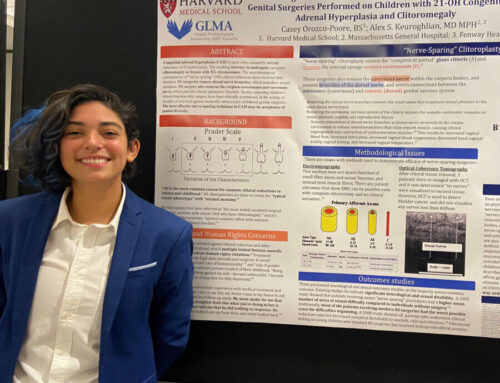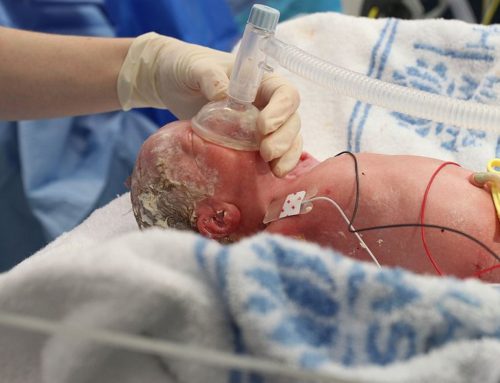 For almost a quarter century, the medical community has been aware of the profound damage that can result from nonconsensual genital surgery performed on intersex infants. But an increasingly small number of doctors still insist that such surgery should continue – simply because they don’t know what will happen to intersex kids if they don’t have surgery. Finally, a group in France is doing the critically necessary follow-up on intersex children whose parents choose to delay surgery until they are old enough to decide for themselves. And they are doing fine!
For almost a quarter century, the medical community has been aware of the profound damage that can result from nonconsensual genital surgery performed on intersex infants. But an increasingly small number of doctors still insist that such surgery should continue – simply because they don’t know what will happen to intersex kids if they don’t have surgery. Finally, a group in France is doing the critically necessary follow-up on intersex children whose parents choose to delay surgery until they are old enough to decide for themselves. And they are doing fine!
The authors of Deferring surgical treatment of ambiguous genitalia into adolescence in girls with 21-hydroxylase deficiency: a feasibility study state that:
“Despite concerns, inertia has perpetuated the practice of early genital surgery into the present, and, to date, there have been no series of patients left unoperated until adolescence or adulthood so as to form a basis for comparison. Current practice still favours early genital surgery, usually based on nebulous and unproven scientific facts, as shown by national statistics, audits of practice among pediatric surgeons, and the paucity of data on unoperated patients in series of 21-OHD patients. Nevertheless, the handful of DSD patients that have remained unoperated, seem to have similar genital sensation to normal controls, with numbers however remaining too small to draw firm conclusions on.”
The small series shows that “so far no major concerns have been reported from patients and their families,” and concludes that “with appropriate medical care and psychological support, it is possible to defer genital surgery.” In contrast to the many hospitals that send all infants with atypical genitals to a urologist (surgeon), the French team offered all families in the series a consult with both a pediatric endocrinologist and a gynecologist with expertise in pediatric and adolescent care, and only referred to a urologist if requested. With such support, the parents of children in the series felt comfortable deferring surgery. The authors indicate that they will continue follow-up of this important work.
You can read the whole report here. (We have removed unnecessary images of intersex infants’ genitals.) Thank you to the authors for making this breakthrough in research, and for preserving options for their patients and families!





